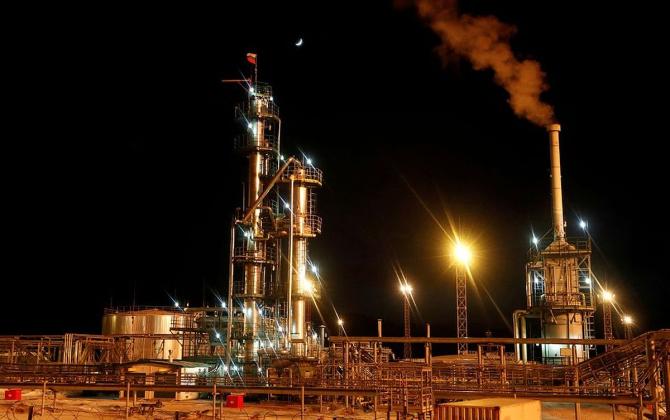Escalation of the conflict in West Asia between Israel and Iran has had a direct impact on the energy markets, and more broadly on the financial markets as well as the global economy.

There are fears of supply disruption. These are very significant for India since it is not just a net importer.
The greater proportion of Indian gas and oil supplies comes out of West Asia, via routes which could be under threat of blockade.
Moreover, there are specific factors to cause concerns for Indian investors in the energy sector.
Given the elections, refiners and oil marketers cannot pass on the increased prices of crude and gas at the retail level.
This implies losses for downstream companies like Bharat Petroleum (BPCL), Hindustan Petroleum (HPCL) and Indian Oil (IOC). And, also gas players, especially those which are dependent on imported liquefied natural gas (LNG) supplies.
At the same time, the windfall tax has been hiked twice, limiting upside gains for producers such as Oil and Natural Gas Corporation (ONGC) and Oil India (OIL).
Net-net, the Indian energy sector could come under pressure.
At the macro level, any up-move in crude and gas prices also puts pressure on the current account (and the rupee) since it skews the trade balance.
It can also upset Budget assumptions.
It has an inflationary effect that feeds through the entire economy. Investors have to consider various geopolitical scenarios.
In one, there's quick resolution and in others, there are varying levels of continuing tensions and conflicts.
There are various levels of disruption of fuel supplies through the Red Sea (already under threat from Houthi attacks) and the Straits of Hormuz, which Iran could blockade.
Around 15 per cent of the global crude supply and 20 per cent of the gas moves through the Straits of Hormuz.
Even if alternative routes are used for crude, freight costs will spike.
In addition, no alternative routes are available for LNG, currently evacuated via the Straits, and India is highly dependent on these LNG supplies.
Iran's entire production (or a large chunk) could be at risk, as well as gas out of Qatar and UAE.
Crude oil out of Iraq, Saudi Arabia, and other countries could also be interdicted.
OPEC or OPEC plus (including Russia) could hike production but it isn't only a question of production - oil or gas from alternative sources will lead to additional freight costs.
Higher crude and gas prices would be a negative for the margins of oil marketing companies such as HPCL, BPCL and IOC.
Every Rs 1 change in gross marketing margin impacts the consolidated earnings before interest, taxes, depreciation and amortisation (Ebitda) estimates of HPCL, BPCL and IOC by 25 per cent, 22 per cent and 23 per cent, respectively, for FY25.
Higher spot LNG prices could also hurt volume offtake and lead to lower margins for gas players like GAIL and Petronet LNG and city gas distribution (CGD) companies like Gujarat Gas, Indraprastha Gas (IGL) and Mahanagar Gas.
There s a ceiling on profit margins in the event of high crude prices for ONGC and OIL, given net realisation is capped at around $75 per barrel by windfall taxes.
The market is adjusting for these scenarios, which have been discussed earlier.
The stock market has fallen as it has discounted the negative implications.
There could be a relief rally across the markets if the conflict is de-escalated soon.
If it doesn t, inflation expectations would have to be revised upwards.
And, in any case, the energy sector has to brace for a negative impact on Q1 FY25.
Disclaimer: This article is meant for information purposes only. This article and information do not constitute a distribution, an endorsement, an investment advice, an offer to buy or sell or the solicitation of an offer to buy or sell any securities/schemes or any other financial products/investment products mentioned in this article to influence the opinion or behaviour of the investors/recipients.
Any use of the information/any investment and investment related decisions of the investors/recipients are at their sole discretion and risk. Any advice herein is made on a general basis and does not take into account the specific investment objectives of the specific person or group of persons. Opinions expressed herein are subject to change without notice.












 © 2025
© 2025